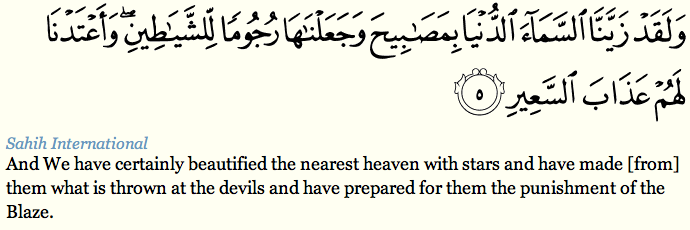Often I have came across translations of Quran and the translation is totally different between two interpreters. Why is it so when the Quran itself is very clear? As an example

Note here, beautified the nearest heaven with stars
In another more correct version, it is correctly translated as follows
067.005 YUSUFALI: And we have, (from of old), adorned the lowest heaven with Lamps, and We have made such (Lamps) (as) missiles to drive away the Evil Ones, and have prepared for them the Penalty of the Blazing Fire.
PICKTHAL: And verily We have beautified the world's heaven with lamps, and We have made them missiles for the devils, and for them We have prepared the doom of flame.
SHAKIR: And certainly We have adorned this lower heaven with lamps and We have made these missiles for the Shaitans, and We have prepared for them the chastisement of burning.
I did some investigation weather start (Najam) is the correct word or Lamp (Misbah). They are clearly different words. After google search, I found
مصباح lamp, bulb, floodlight, glow-lamp
star = نجمة, النجمة
My question is why scholars utterly change the meaning of the verse, provide totally different translations when the verse itself is very clear?
Note: This is not just one verse, there are many. You may put the question in a better form, provide it does not loose its meaning.
